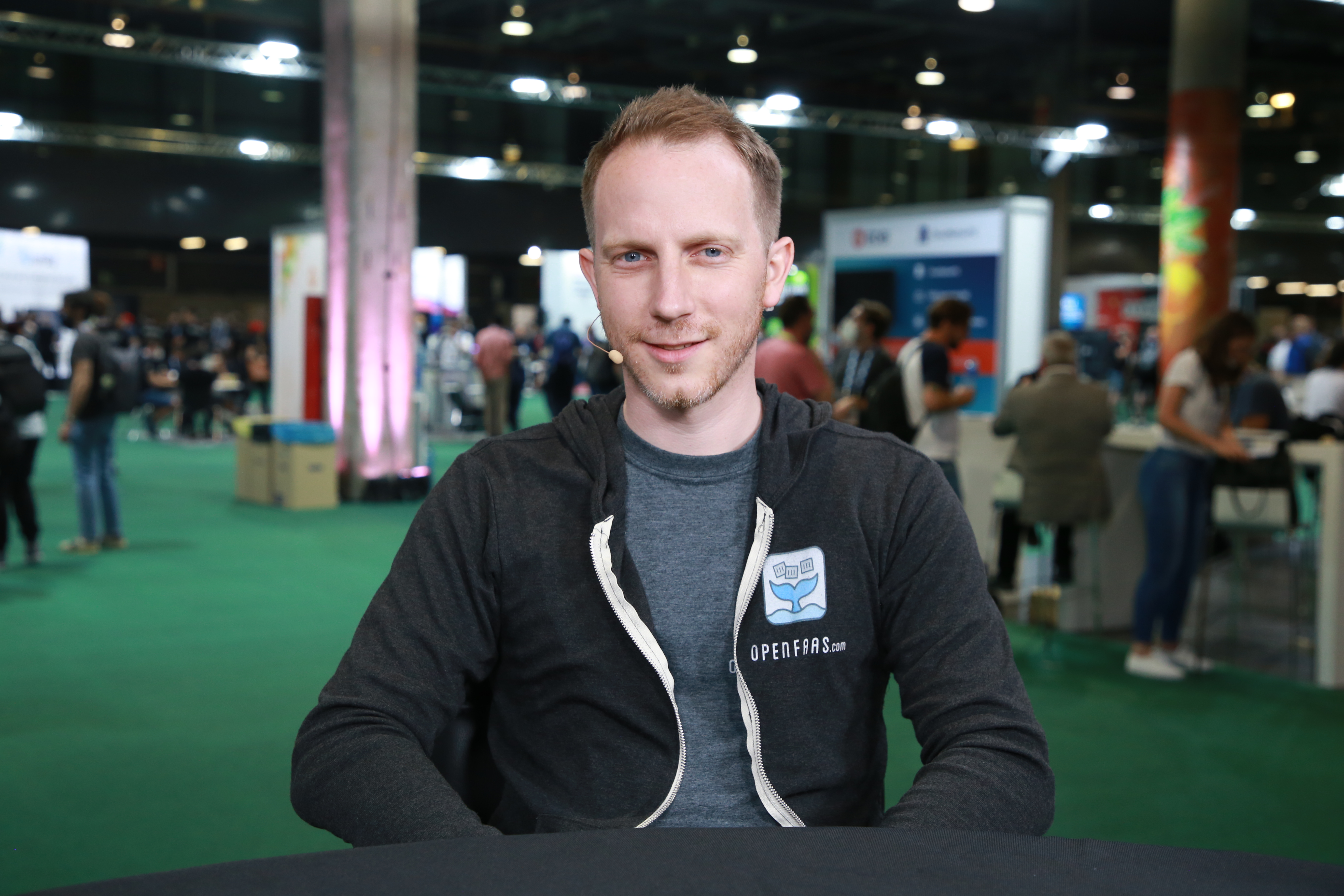 EMERGING TECH
EMERGING TECH
 EMERGING TECH
EMERGING TECH
 EMERGING TECH
EMERGING TECH
Lending insights as a community leader is how one goes about the difficult task of getting paid for developing open-source projects, according to the founder of a growing open-source, serverless deployment platform for Kubernetes.
“I eventually accepted the fact that companies don’t pay for something they can get for free,” said Alex Ellis, founder of OpenFaaS Ltd. “It took me a very long time to get around that,” he recounts of the barren fiscal years while he was developing the open project. Telco BT and LivePerson were among early adopters not paying.
Ellis spoke with theCUBE industry analyst Paul Gillin and guest analyst Keith Townsend in a conversation at last year’s KubeCon + CloudNativeCon Europe event, during an exclusive broadcast on theCUBE, SiliconANGLE Media’s livestreaming studio. They discussed how hard the open-source market is to monetize and what other developers can learn from OpenFaaS’s journey. (* Disclosure below.)
Ellis discovered that companies have no incentive to help if they have already captured the value. “They have no incentive to support you, build a relationship, or send you money in any way,” he said.
He recalled telling adopters in the early years that he needed money to continue the work. (The open solution allows microservices on own-hardware or any cloud, letting users deploy legacy code and binaries with autoscaling a major feature). He had quit his job and knew companies were using his project, yet he hadn’t got a way to fund it. The adopters’ response: “Sucks to be you,” he stated.
The solution he eventually discovered: the aforementioned community expertise offerings, plus levels of technical support. Folks getting into developing for open source could also consider “closed-source pieces,” he proposed. That could include specific enterprise-targeted elements not in the open-source offering. It’s what he is doing.
Amusingly, Ellis gets into some discussion over how larger enterprises are adopting open source, such as OpenFaaS, but don’t tell the builder.
“They don’t tell you they’re using it until it breaks,” he said. “Then they may come in incognito with a personal e-mail asking for things.”
They don’t want to lend their brands, in other words, he explained of the tough marketplace he’s battling.
Here’s the complete video interview, part of SiliconANGLE’s and theCUBE’s coverage of the KubeCon + CloudNativeCon Europe event:
(* Disclosure: TheCUBE is a paid media partner for the KubeCon + CloudNativeCon Europe event. Neither Red Hat Inc., the main sponsor for theCUBE’s event coverage, nor other sponsors have editorial control over content on theCUBE or SiliconANGLE.)
Support our mission to keep content open and free by engaging with theCUBE community. Join theCUBE’s Alumni Trust Network, where technology leaders connect, share intelligence and create opportunities.
Founded by tech visionaries John Furrier and Dave Vellante, SiliconANGLE Media has built a dynamic ecosystem of industry-leading digital media brands that reach 15+ million elite tech professionals. Our new proprietary theCUBE AI Video Cloud is breaking ground in audience interaction, leveraging theCUBEai.com neural network to help technology companies make data-driven decisions and stay at the forefront of industry conversations.